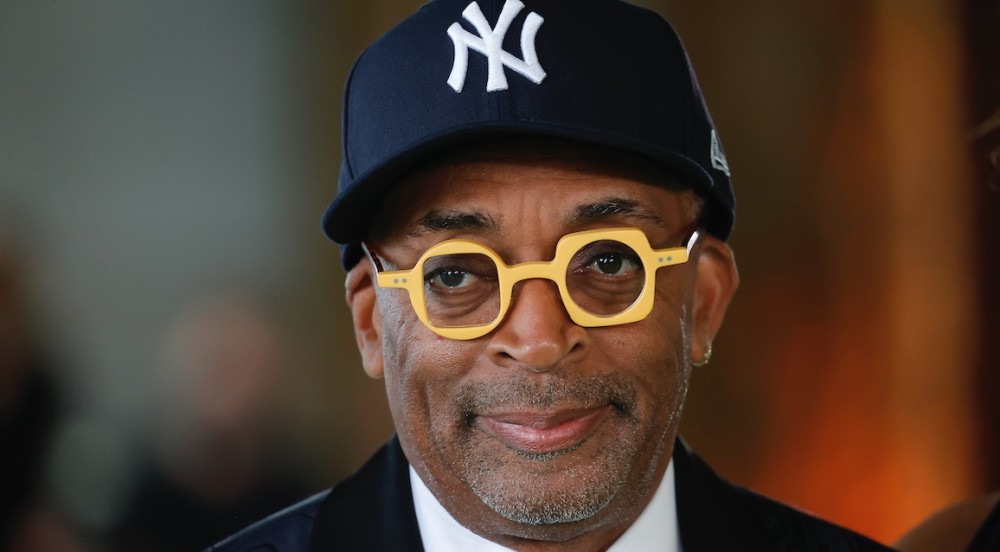Prolific filmmaker, director and actor Spike Lee says there’s a simple formula to his 30-plus years in the entertainment business.
“When I decided to become a filmmaker, I planned that I would have longevity, and not be a flash in the pan,” declares Lee, who is this year’s recipient of EBONY’s Power 100 Icon Award.
The Brooklyn-raised Lee, who has never taken the Black artistic form lightly, has countless acclaimed films to his name, including BlacKkKlansman, which garnered Lee the Academy Award for best writing (adapted screenplay) in 2019. Several of Lee’s films have been selected by the Library of Congress for preservation in the National Film Registry for their culturally significant value.
Through his production company 40 Acres and a Mule, Lee’s “A Spike Lee Joint” has influenced the aesthetic and storytelling style of multiple generations. Here, Lee shares his artistic influences, his proud Morehouse heritage and why we should always remember to acknowledge our ancestors.
EBONY: Congratulations on being our EBONY Power 100 ICON of the year.
Spike Lee: [EBONY], it’s been with me since adolescence, a little kid from Brooklyn. When you speak about the culture, our culture, EBONY, JET magazine is ingrained in that. I mean, that cannot be disputed. And so my wife, Tonya Lewis Lee, and I, we will be there, honored and representing.
How do you describe your legacy? It started when you were so young and just expanded over so many years.
It was always my plan to have longevity and just be devoted to honing my craft each time out. I tell this to all my students: when you find something that you love, it’s not a job. Very few people get to make a living doing what they love, especially in the arts. In order to do that, you can say a lot of things, but you got to put the work in.
Is there one moment that you feel defines your legacy?
I’ll let somebody else do that, not me. I love teaching—I’ve been teaching at New York University’s graduate film program for over 20 years. I'm a tenured professor there. I’m also the artistic director of the film school. I come from a legacy of educators in my family. One of my great-great-grandfathers was a disciple of Booker T. Washington at Tuskegee University.
Filmmaking and education, you got to do the two things that you were destined to do.
Well, my mother went to Spelman College. My grandmother went to Spelman. My father went to Morehouse College and my grandfather went to Morehouse. So I’m third generation Morehouse men—Spellhouse!
EBONY is all about “Moving Black Forward.” How do you define that statement?
Moving to help is my definition. To help us move forward, we have to remember our ancestors who came before us. You've got to draw upon the power of spirituality. The love, the sacrifice of our ancestors, who were stolen from Mother Africa and brought to Jamestown, Virginia, 1619. Worked from can't see at morning to can't see at night. Along with the stealing of the land from our Native American brothers and the genocide of Native Americans, and stealing the land from our sisters and brothers. That coupled with our ancestors being enslaved, that’s the foundation of the United States of America.
So now it's about giving back.
It’s respecting what our ancestors have done for us and still continue to do for us. I acknowledge my ancestors all the time. I know that they died for us knowing that hopefully one day the offspring would be, many, many generations later, in a better position in these United States of America.
Your work has told the stories of Black people and the sacrifices, the pain and the triumphs we've gone through since those days that we were first brought here.
Who was ahead of me? Oscar Micheaux, Ossie Davis, Gordon Parks, Sidney Poitier, Michael Schultz, Melvin van Peebles. Those filmmakers, they inspired me.
What will be your next great accomplishment?
I'm presently working on a mini, multi-part documentary on Colin Kaepernick for ESPN.
Can you give us one word to describe how you feel about being this year’s Power 100 ICON recipient?
Blessed.













